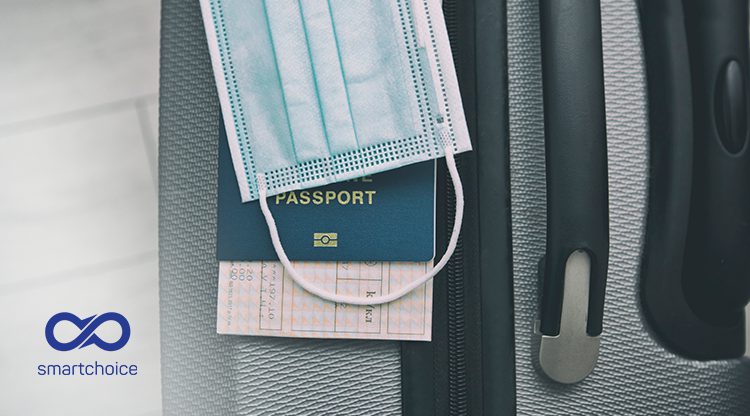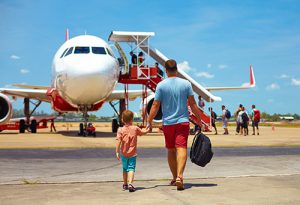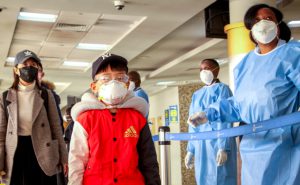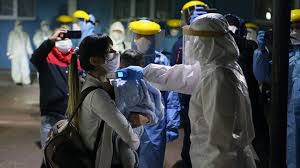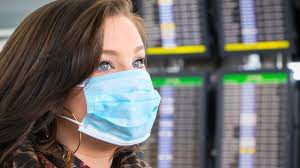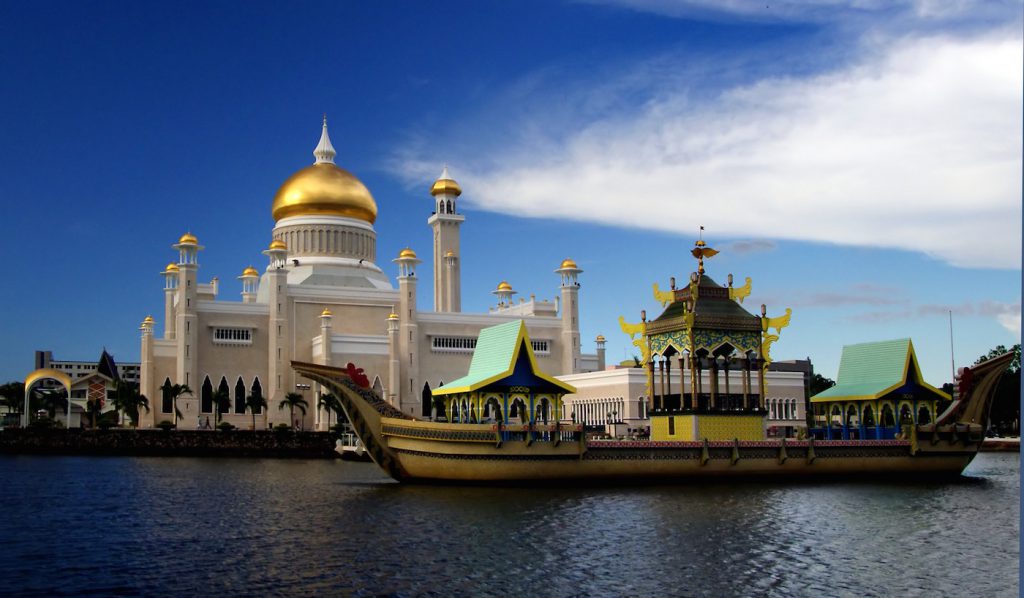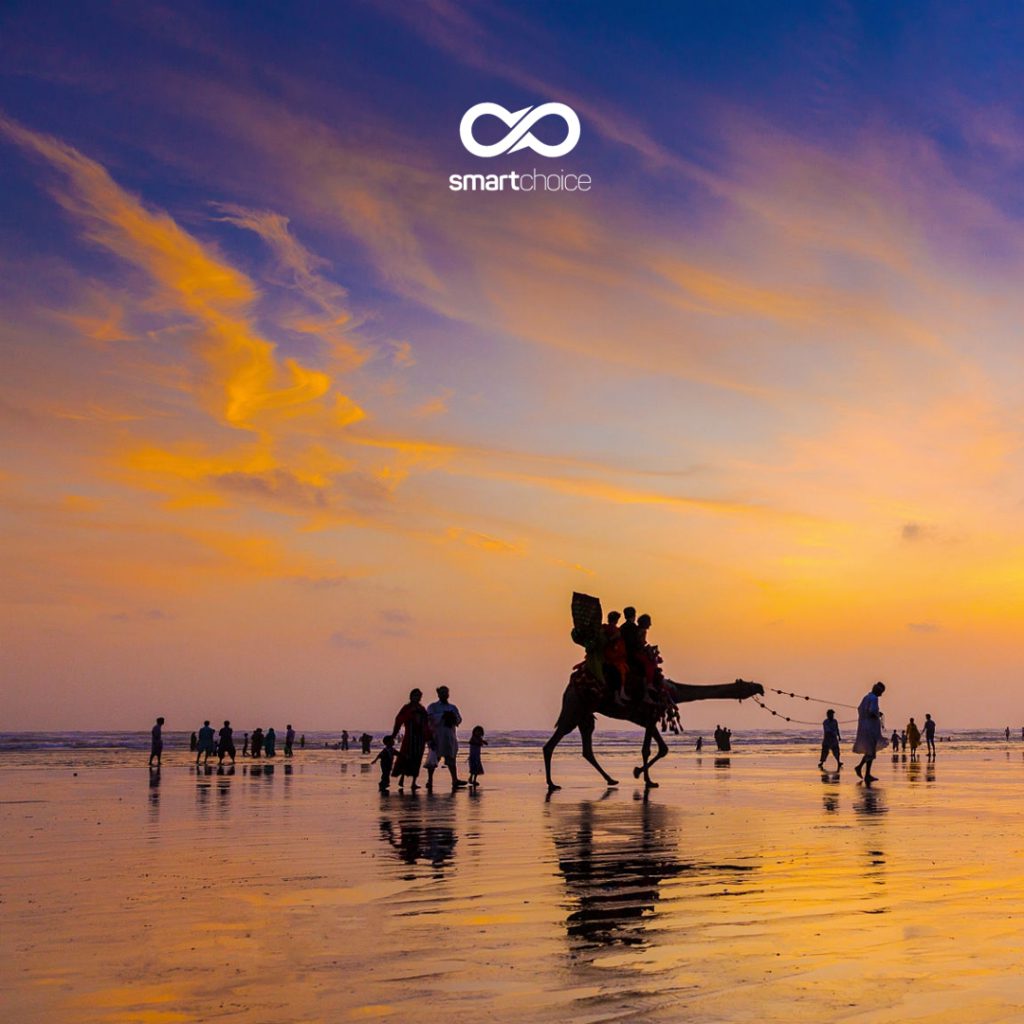SUMMARY
The article focuses on the routine that is most expected to be followed while travelling post-COVID-19, it would be a long queue and some extra and complicated procedures that shall become part of all travels domestic or international.
It also highlights how people would be required to do contactless check-inns, reach airports more than 4 to 6 hours before, travel to places which are less crowded and not yet much explored, museums would have a set protocol to be visited and the immunity certification that would be a primary requirement same and as important as your passport. The article further explains what changes can be more expected in detail in the article body.
The tourism industry has been hit hardest by the COVID-19 which started as an epidemic in Wuhan and turned into a global pandemic in no time, many countries and aviation authorities have begun to introduce and some have even started to implement measures for its recovery, just as the countries did after the 9/11 when the attacks took place in New York City and the air travel was stopped for several weeks and these attacked changed the security controls and measures forever.
It was experienced during the 2004 Indian Ocean tsunami and earthquake. The truth is that there is no going back to the “old normal”. To the routine, we are used to, the time we lived and roamed care-free when we travelled in flocks and enjoyed everything in big groups. It is a fact that, at first, some changes will be quite radical, but corporations, industries and individuals will have to get used to it until everything starts to smooth out again and, hopefully, in a healthier way. So, be prepared for changes when you Travel after COVID-19.
Some major and expected changes regarding future air travel would be: the time required to reach the airport before the flight scheduled time can/shall be increased from minimum two hours to four-Hour Process, there would be Self-Check-In, Disinfection units on multiple points, Immunity Passes/certification shall be made mandatory from the point of origin to ensure the safety of all other passengers travelling.
As we saw in the Repatriation flight which carried the Russian tourists to Moscow from New York, when it landed we saw workers in protective suits at the International Airport before meeting the Russian…
Looking at the present protocols we believe that once the airports and borders open again and people can fly freely a process already in play as airports of all sizes around the world ready strategies to ensure healthy air travel how much are you ready to change your flying habits?
What happened when 9/11 happened? As much as was required after 9/11 was it done? Was it less? More?
Considering some of the changes already happening and the many more are recommended before airports open completely, some things need to be kept in perspective before we can reopen safely to commercial routes? The experts and according to their analysis, they are considering the coronavirus pandemic as ‘the new terrorism,’ triggering the biggest crisis the airline industry has ever faced.
Let’s take the first step first….while boarding
Let’s start with the entire process of checking in for flights, which some estimate that it could take up to four or more than four hours which would involve social distancing, proper sanitation of passengers and their luggage, larger spaces for various lines to waiting to board the aircraft.
According to the Nine out of 10 experts expect slower turnarounds amid flights due to the need for thorough cleaning and sanitization of cabins and following of the numerous hygienic measures at airports.
In the immediate future, we foresee, however, it’s expected that reduced travellers in number and airlines shall be travelling to a smaller pool of destinations may reduce delays.
Among the steps under due consideration: probably there would be no cabin bags, no airport executive lounges, no automatic upgrades to be availed, mandatory face masks, surgical gloves to avoid skin contact, baggage to be self-check-in, self-bag-drop-off points, immunity passports, on-the-spot blood tests check-points and sanitation disinfection tunnels that you would need to pass through.
The advancement of digital technologies and automation will play a crucial role in future air travel. The imperative need to lessen and reduce “touchpoints” at airports point towards mandatory use of biometric boarding which shall allow passengers to board planes with only their face which shall be used as a passport.
Several airlines including British Airways, Qantas and Easy Jet already are using some of the aforementioned technology. According to the World Travel and Tourism Council (WTTC), “the ‘new normal’ post-COVID-19 at major airports, such as Heathrow, JFK and Singapore Changi will include almost exclusive use of online check-ins and contactless payments.
Then there are the drastic changes the airports will have to make starting most probably with stopping non-fliers from entering the airport premises at all except for solitary minors or others for example seniors who need assistance.
The more extensive system at the airports would include all-biometric check-in systems and efficient DYI for dropping off bags, ‘travel bubbles,’ or tunnels for disinfection from any bacteria before boarding the flight. (After the luggage is checked in, it may also be put through a disinfection fogging tunnel). There would be space demarcation of the spaces for social distancing in corridors and open space, larger spaces for queues and waiting, Plexiglas or other defensive barriers at customer service counters, multiple hand sanitation stations, using of stairs would be more often than lifts where the two-meter-rule can be harder to maintain; and fitness equipment being moved for greater separation and thermal scanning to check masses for fever-grade body temperatures, which already are in place at some major airports.
“Only those ‘fit to fly’ will be allowed to enter,” predicts the airline strategy firm SimpliFlying, the world’s leading aviation marketing consulting firm in a recent report identifies more than seventy different areas in the passenger journey that are anticipated to either change or to be introduced completely new from scratch, including having the luggage bags ‘Sani-tagged’ after going through fogging, electrostatic or UV-disinfection procedure to restore and re-establish confidence in flying after COVID-19.”
According to the Telegraph, “it may sound futuristic, but UV sanitation is likely to become commonplace at the world’s airports. London Heathrow says it is to begin trialling the process for its security trays.”
The second step is the…boarding of Airplane…
The boarding process is expected also to become completely ‘touch-less,’ with options including facial recognition, which is already being used in some of the U.S. airports for international flights. On the aeroplanes, there will be impassable seats, electrostatic spraying, personnel in protective gear (like usage of all protective gear) and, of course, masks. Major European air carriers such as Air France and KLM already have made them obligatory and it’s expected that all other airlines will follow the suit. As for food, the expectation from the airlines is that they would stop serving altogether on short-duration flights, while the airlines consider ‘light refreshments’ for long flights. We know for sure that Hong Kong Airlines has decided to stop offering food altogether.
Lastly-On Arrival
At the arrival point, SimpliFlying has forecasted, the international passengers will need to show some type of immunity or protective document/passport, also supported by the International Air Transport Association, IATA, to border control agents. Once a vaccine has been formulated, that could shift to a proof of vaccination which shall be required by the host state.
It is also expected that “Arriving passengers will also undergo another temperature screening at their final destination and potentially even blood tests for COVID-19,” CondeNast has predicted. At the moment “Some airports like Hong Kong and Vienna are testing passengers for the coronavirus with a blood test before they are allowed to enter the country. Those types of tests and screening, however, might be short-lived.”
Thermal testing is also recommended by IATA, “while Airlines UK, which represents British Airways, EasyJet and Virgin Atlantic, has said ‘pre-screening’ of travellers should be introduced ideally as early in the passenger journey as possible,” says The Telegraph.
Although no standard decisions are being made which can be universally applicable about making the COVID-19 tests one thing that can be assumed mandatory would be the test at the airports prior boarding, the airlines are making effort and pushing for uniform regulations which are agreeable by all countries. It yet needs to be determining which authority shall be made responsible to check the travellers for the disease and the symptoms. SimpliFlying predicts that a new federal monitored and managed health agency will likely be created to coordinate health screenings inside airports.
Same as post 9/11, a process of trial-and-error is likely, with many airports and airlines following what some ‘pioneers’ establish.
The international institution says that the sector will face a gradual but slow return to travel over the coming months as a “new normal” emerges before a vaccine becomes available on a mass scale, encompassing enough to inoculate millions of people. Travel is likely to start first with domestic travel with, then to each country’s nearest neighbours before expanding across regions, and then finally it would be resumed across continents to welcome the re-beginning of journeys to long-haul international journey’s end. WTTC believes that younger travellers in the 18-35 age groups, who appear less susceptible to COVID-19, also may be among the first to begin travelling and exploring again.
It would be too wish-full to hope that travel industry would be up and running on its feet in no time even with the protocols and standards, biometric systems, immunity passports and the best intentions and measures for a safe road to recovery, the future of travel, as New York Times’ explains, is still bleak: “With much of the world closed for business, and no widely available vaccine insight, it may be months, if not years, before airlines operate as many flights as they did before the crisis. Even when people start flying again, the industry could be transformed, much as it was after the September 11 terrorist attacks.”
And in the process, as it is already the case, some airlines, especially smaller ones unable to withstand no-positive-business-activity for a longer period, will be pushed into bankruptcy or become buyout targets. Few important things to be considered are end-user fears about grasping the virus on crowded planes where there was no proper distancing being maintained and it could lead to reconfigured seating to make the consumer worry-free. Post COVID-19 the airlines may initially attract guarded travellers with some good discounts, but if they can’t fill up flights to its capacity, it may lead to them raising ticket prices.”
According to Dave CalhounIn, CEO of Boeing, not only are the smaller airlines in danger and a per his analysis at least a major U.S carrier will “most likely” go out of business due to the coronavirus pandemic. In an interview with NBC News’ TODAY, he told Savannah Guthrie: “…something will happen when September comes around. Traffic levels will not be back to 100%. They won’t even be back to 25%. Maybe by the end of the year, we approach 50%. So there will be adjustments that have to be made on the part of the airlines.”
Some of the implications are just not being limited to a certain time, they would be not only drastic but at the same time far-reaching as well and things that shall change we will have to live them for a foreseeable future, the world would adapt to these changes as humans being susceptible to changes shall make themselves flexible with how the situation unfolds.
Back to the International Certificate of Vaccination (ICV)
For multiple years, travellers needed to receive a “yellow card” showing that they were vaccinated and had immunity against the main international diseases (yellow fever, typhoid, hepatitis and other diseases) to enter many countries. But the enhancement of global health and mass vaccination campaigns made it unnecessary.
The new certificate will be known as probably the immunity passport or so, which can be issued in many ways, including apps and other digital formats. Travellers will have to be more responsible and accountable to get vaccinated against diseases that can be prevented at some destinations.
Personal protection
In 2020, and perhaps for a long time to come, masks, hand sanitizers and a well-stocked vanity kit (a small gear for self-protection) will become part of the luggage of any responsible and mature traveller. As those wearing masks don’t only protect themselves but also others against any spread of infectious disease. It is also recommended that when aboard a plane, it is best to keep your face mask on as much of the flight as possible when physical distancing with the fellow passenger is not possible. Also, wash your hands well for at least 20 seconds with soap and water every time you go to the washroom and always use a paper towel when touching sink knobs, toilet handles, and door handles. Moreover, consciously avoid touching your eyes, nose, and mouth after touching plane surfaces and use antibacterial emollient that has minimum 60% alcohol if washing your hands with soap and water is not possible at that time. Travellers should also turn the air outlet towards their face so that it will keep the space around them as well-ventilated as possible.
Airports and Planes Checkpoints
As we have extensively discussed, it is pertinent to mention that, it may just not be limited to airports only but airline personnel would also join security to carry temperature and immune passport checks. There is no doubt that this protocol could also be enforced in hotels, resorts and cruise ships, which could mean an increase in medicinal services, including COVID-19 tests and expanding medical facilities.
Some airlines in the US like Alaska and Delta have announced that they will keep middle seats empty in economy class in a move to enforce social distancing between travellers to reduce risks of spread. The disadvantage is that this could most likely increase ticket prices by up to 50%, as stated by many publications, but on the upside, travellers can expect a better/upgraded service, more space and more security.
Expert in Innovation, Natalia Bayona at Digital Transformation and Investments at UNWTO (World Tourism Organization) explains: “We are partnering with Airbus to bring solutions as soon as possible through a technology that can control and guarantee traveller safety before boarding a plane through a COVID-19 visa in coordination with governments and health centres.”
Hotels: more distance between clients and acquiring COVID-Free Certification
Many hospitality businesses to re-start their operations are already introducing measures such as temperature checks, they are handing out masks and gloves to the customers, employing greater distance between tables, and are even setting up screens to separate some areas from the others. For instance in China and Korea, measures like these have allowed businesses and stores to reopen for business breathing in some life in people’s socio-economic stature.
For example, In Spain, the Madrid Hotel Business Association (AEHM) is designing an action protocol to create a COVID-Free certification, for hotels, which upon acquirement guarantees the safety of clients and workers both, making it reliable and win-win situation. Radisson Hotel Group has launched its Radisson Hotels Safety Protocol, which is a new program of processes focusing on thorough cleanliness and disinfection.
There can be other alternative hospitality management model which can be employed, for instance, daily cleaning routines could be more spaced, for example, cleaning the room only at the beginning of the travellers stay to avoid constant housekeeping, which would mean that the cleaning staff could focus on keeping common areas clean more often.
Museums: no more crowds and pre-reservation
If you are an avid history and art fan…
This may come as sad news that in the forthcoming future to avoid crowds, museums could limit capacity, although this could be compensated by extending opening hours and distribute visitors throughout the day by handling visits only through prior reservations. Besides buying the tickets online, museums will/may offer audio guides with disposable headphones, or marked tours to avoid crowds. Safety distance to avoid any kind of mishap between the visitors will need to be maintained and disinfection solution will be available to the tourists at multiple points.
Insurance
In Pakistan, the insurance industry has been quick to adapt and modify their travel policies along with their inclusion and exclusions related to COVID-19 medical facilities and coverage. Many prominent insurance providers are providing CORONA protection properly mentioned in their policy under a separate head so the travel faces no hurdles and impediments while embarking on his/her journey. Corona coverage inclusive travel insurance is available at Smartchoice.pk, it can be easily purchased while sitting at home in a few minutes and if you online within 60 minutes you shall receive your travel insurance policy.
However, overall travel assistance remains as well as coverage of health expenses derived from it, things may be modified a little depending upon the post-COVID-19 implications unless governments roll out new measures and protocols for each country.
The insurance companies, governments and those in the tourism industry are interested in creating new products and services to restart the business and let more and more to travel. At this stage, it is already unthinkable to go on a trip without financial and health insurance for travellers.
Alternative destinations
Well…Well…
Time to explore some hidden gems such as beaches, rural and mountain tourism, unidentified countries, unexplored neighbourhoods in large cities and countries… The least visited and least travelled destinations will become more appealing and safer, just like remote beaches and coves on any coast. Mass and big group tourism will give way to more selective and slow tourism. Moreover, most trips will be within one’s countries borders only, hence the domestic tourism sector will be the main revenue source of the industry for each country.
Conclusive Remarks….
Many changes are headed our way, some would make us tired, and some would be difficult, while travelling may not be as much fun an expected immediately post COVID-19 keeping the overall pandemic situation at hand and the people it has infected and the lives it has claimed. One also needs to remember that many times the world has been victim to multiple influenza and diseases like Spanish Flu, SARs etc. The survival is possible but at the same time extreme precautions are also very important as once an intelligent man right said: “Prevention is better than cure”.

